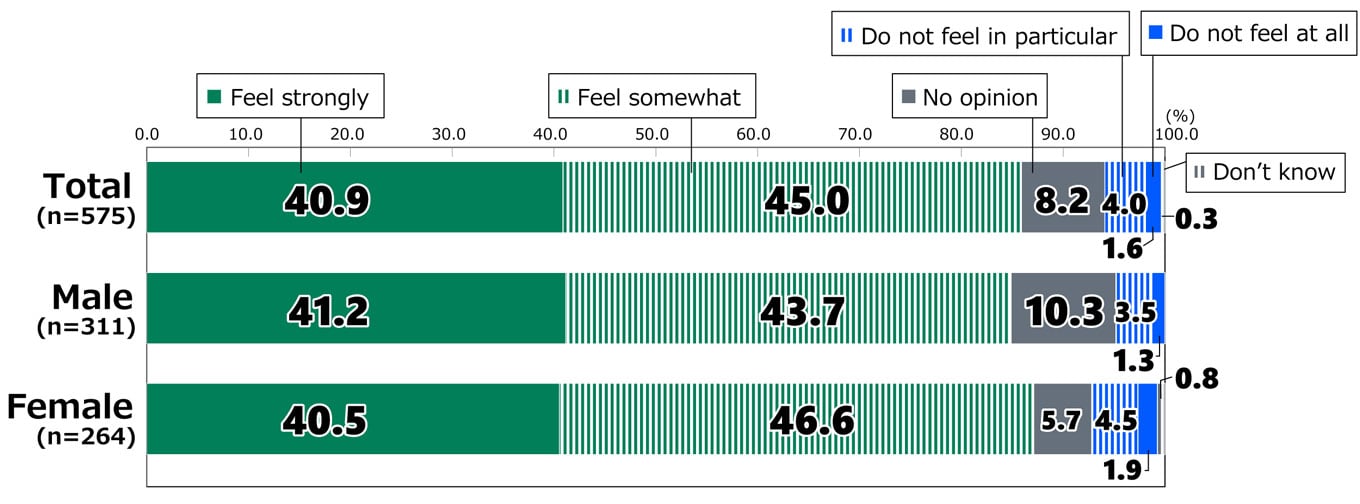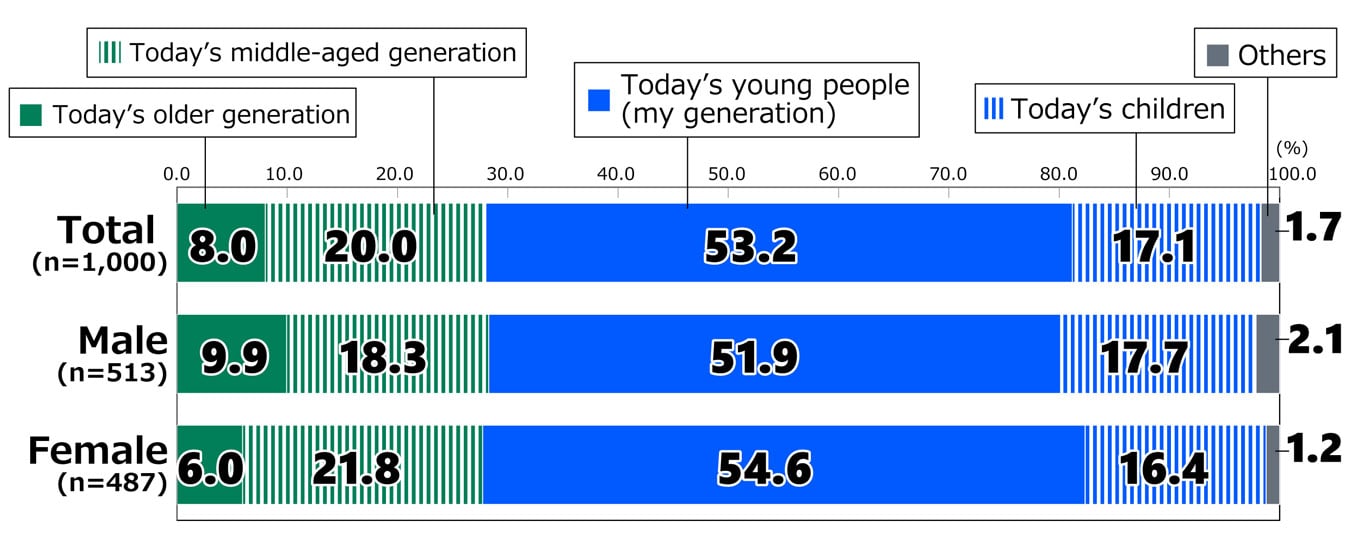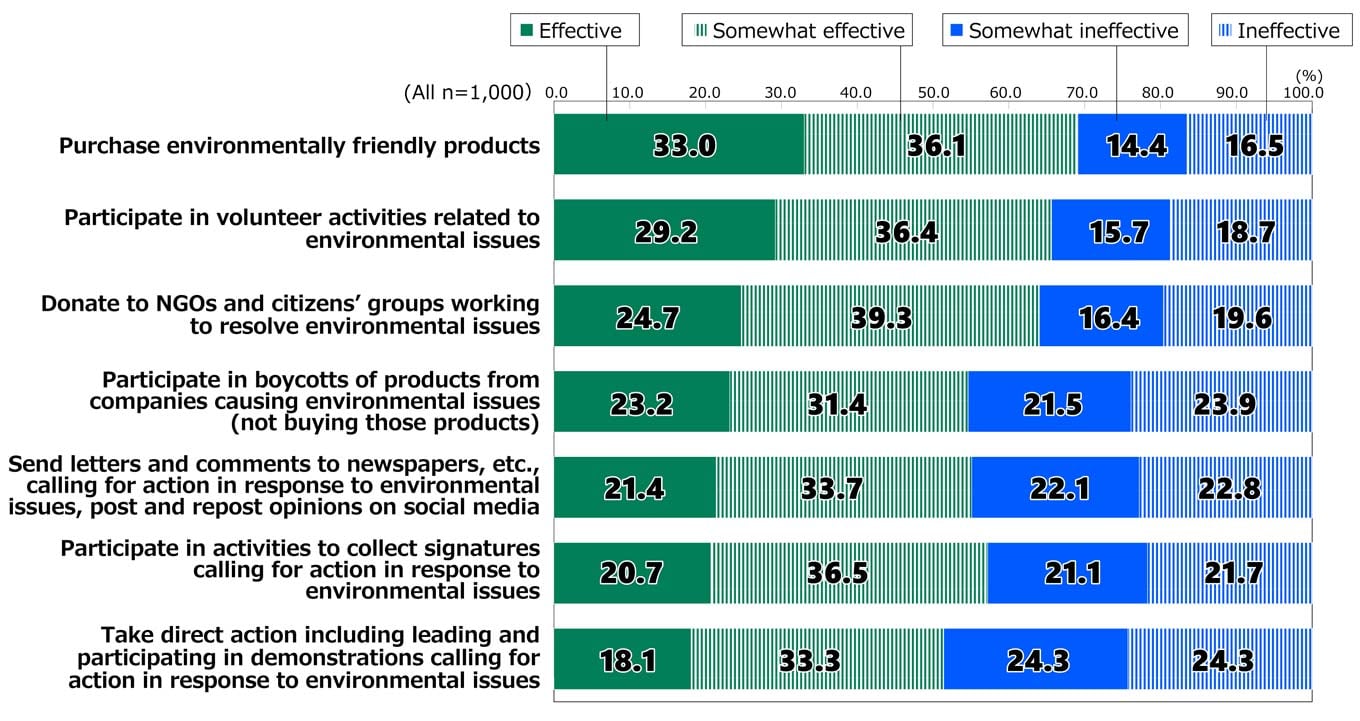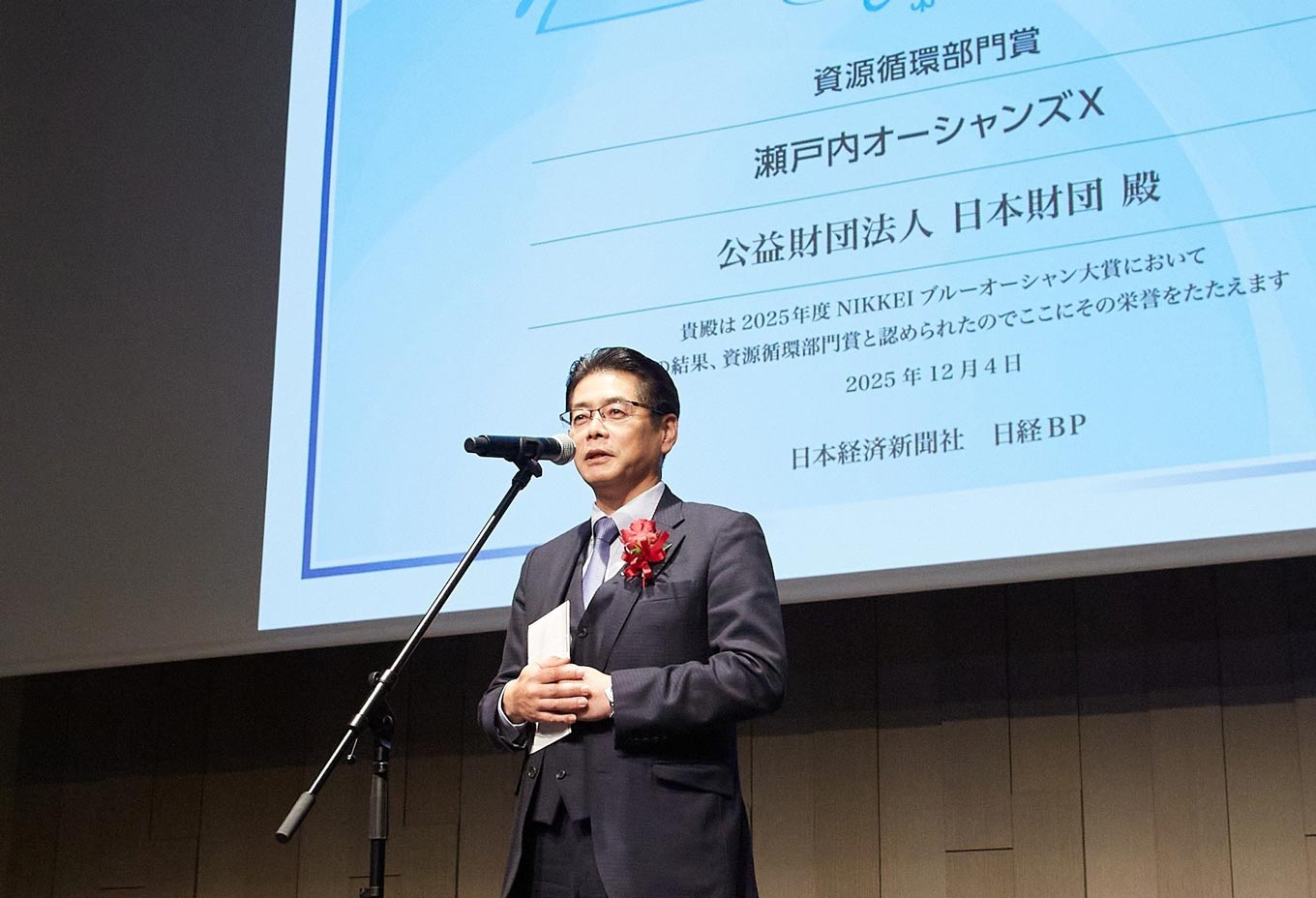Awareness Survey of 18-Year-Olds – The EnvironmentResults of 69th installment announced – Close to 90% concerned about climate change, more than half consider countermeasures to be ‘my generation’s’ responsibility

The 69th installment of the Awareness Survey of 18-Year-Olds, launched by The Nippon Foundation in October 2018, was carried out on March 14-17 to gauge young people’s awareness of the effects of the increasingly severe effects of climate change, how climate change should be addressed, and environmental initiatives.
Regarding the effects of climate change, more than half replied that their lives are currently affected by climate change, while close to 60% replied that they would be affected in the future, and of those respondents, close to 90% replied that they were “Concerned” about the future. In terms of society’s approach to date, a majority of respondents replied that society has either “Emphasized economic development only” or has “Emphasized economic development over the environment,” while less than 20% approved of the government’s response to climate change.
On the subject of which generation should take the lead in addressing climate change going forward, a majority replied “Today’s young people (my generation),” and close to 40% replied that there should be a balance in emphasis between economic development and environmental considerations.
When asked what they were doing on a regular basis with respect to environmental considerations, the top answer was “Not leaving food uneaten / When eating out, taking home uneaten food if the restaurant allows it,” followed by “Turning out the lights when no one is in the room,” “Bringing my own bag when going shopping,” and “Separating trash,” all cited by more than 40% of respondents. In addition, roughly 60% of respondents replied that when shopping for things like food and clothing, they would “Choose products and services that address environmental issues even if they are more expensive,” demonstrating that young people are taking a forward-looking approach to environmental issues.
Highlights of the 69th Awareness Survey of 18-Year-Olds – The Environment
Effect of climate change on my own daily life in the future
- Yes – 57.5%
- No – 8.5%
- “Yes” is the total of “Very much” and “Somewhat,” and “No” is the total of “None at all” and “Not much.”
Degree of concern regarding effects of climate change
- Concerned – 85.9%
- Not concerned – 5.6%
- “Concerned” is the total of “Feel strongly” and “Feel somewhat,” and “Not concerned” is the total of “Do not feel at all” and “Do not feel in particular.”
Generation responsible for addressing global warming
- Today’s older generation – 8.0%
- Today’s middle-aged generation – 20.0%
- Today’s young people (my generation) – 53.2%
- Today’s children – 17.1%
- Others – 1.7%
Survey Excerpts
Degree of concern regarding effects of climate change (of respondents who replied “Very much” or “Somewhat” to the question “Will climate change affect your daily life in the future (during your lifetime)”)

- The figure for male respondents replying “Don’t know” is 0.0%
Generation responsible for addressing global warming

Thinking regarding actions and methods related to environmental issues

About the Awareness Survey of 18-Year-Olds
Revisions to Japan’s Civil Code lowering the age of adulthood to 18 for a range of activities, including voting, took effect in April 2022, making it even more important to understand and record the awareness of the 18-year-olds who represent Japan’s next generation. With this in mind, in October 2018 The Nippon Foundation launched the Awareness Survey of 18-Year-Olds as an ongoing survey of young men and women across Japan aged around 18, to survey their values, attitudes toward politics and elections, understanding of social issues, and other current themes on an ongoing basis.
About the 69th Installment – The Environment
| Survey coverage | 1,000 respondents aged 17-19 from across Japan |
|---|---|
| Survey period | March 14-17, 2025 |
| Survey method | Internet survey |
Related Link
Contact
Global Communications Team
The Nippon Foundation
- Email: info_global_communication@ps.nippon-foundation.or.jp



